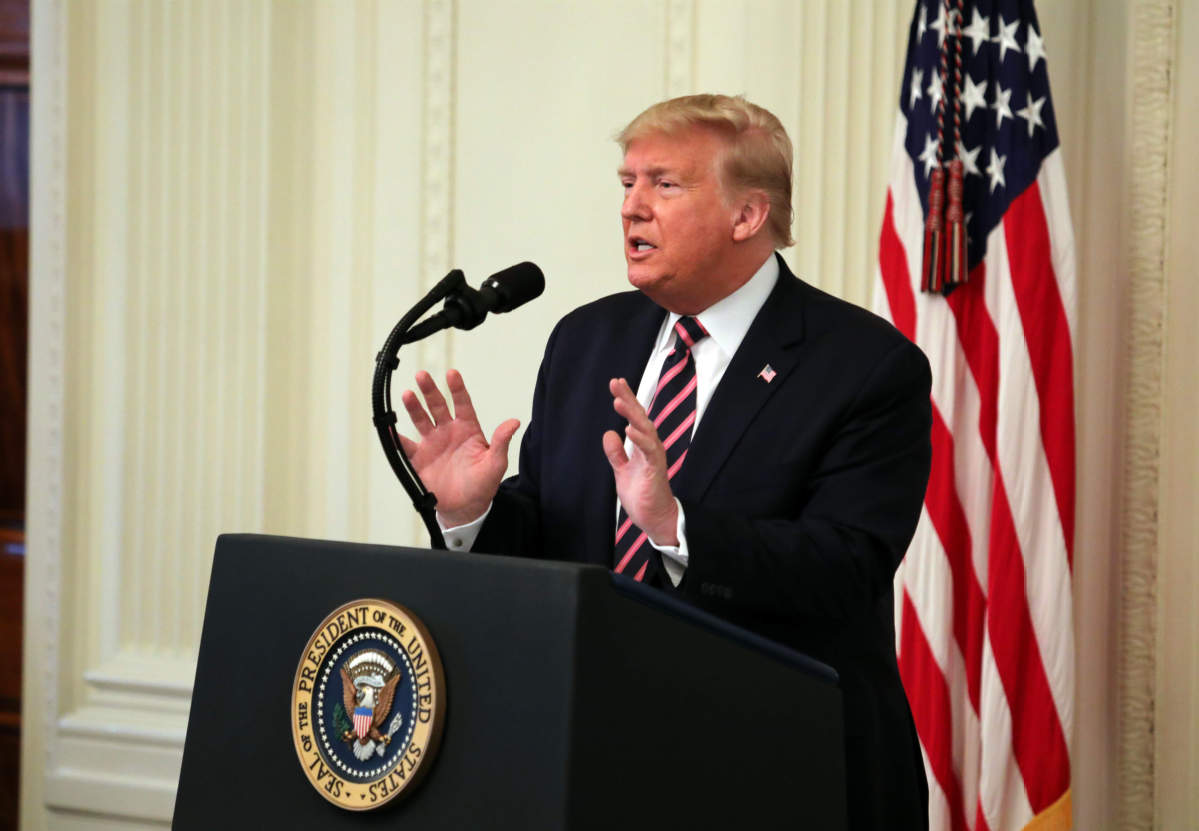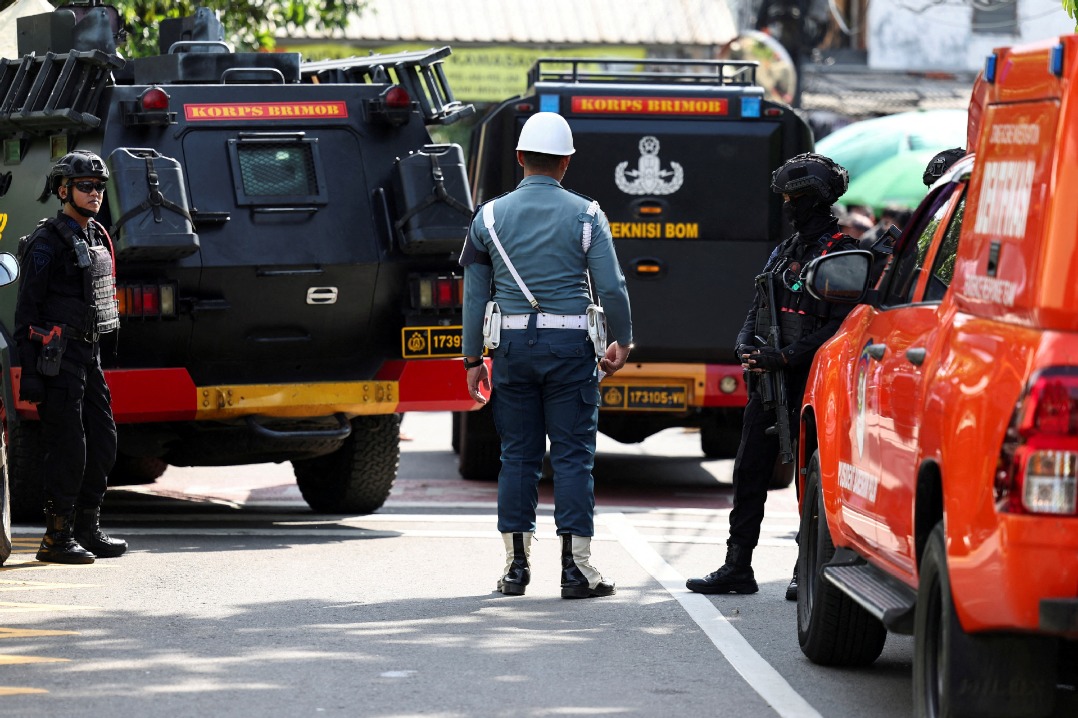Trump expected to declare national emergency


US President Donald Trump was expected to declare a state of emergency on Friday afternoon to fight the coronavirus that is spreading in the country as the administration acted to speed up testing for the disease.
The state of emergency would give him authority to use $40 billion of funds allocated by Congress for disaster relief to address the coronavirus crisis.
Trump, according officials, would invoke the Stafford Act, which empowers the Federal Emergency Management Agency to coordinate disaster response and aid state and local governments.
Trump was scheduled to hold a news conference at the White House at 3 pm on Friday.
The number of coronavirus cases topped 137,000 in 114 countries and regions around the globe, according to data from Johns Hopkins University on Friday. More than 5,000 people have died.
The US has 1,701 confirmed cases, including 40 deaths, according to Johns Hopkins data.
The Trump administration took steps on Friday to speed up coronavirus testing as confirmed cases in the US rose past 1,650 and the death toll to 41.
The Food and Drug Administration (FDA) gave the Swiss health care Roche emergency permission to sell its three-and-a-half hour test to US labs, and the Department of Health and Human Services said it was awarding over a million dollars to two companies to speed the development of one-hour tests.
Testing has lagged in the country, infuriating the public, members of Congress and local leaders While South Korea is testing 10,000 people a day, overall US state and federal testing has yet to log even 15,000, according to the Centers for Disease Control and Prevention (CDC), The New York Times reported.
The CDC reports that it has run a total of 3,903 tests and public health labs in 48 states, New York City and seven California counties have run 9,721.
Hospitals began to be stretched thin by surges in patient loads. If the United States has a surge in the number of coronavirus cases, no state will have enough hospital rooms to treat patients, according to a USA Today analysis.
The newspaper said Friday that its analysis is based on data from the American Hospital Association, the US Census, the Centers for Disease Control and Prevention and the World Health Organization.
The analysis estimates 23.8 million Americans could contract COVID-19. That number is based on an infection rate of 7.4 percent, similar to a mild flu year. The Johns Hopkins Center for Health Security estimates that 38 million Americans will need medical care for COVID-19, including as many as 9.6 million who will need to be hospitalized.
More sporting events were postponed, including the Boston marathon, an annual event since 1897, until the fall and the Masters golf tournament in Augusta, Georgia.
In Los Angeles the second-largest public school system in America after New York City, and the San Diego school system, said Friday they would close all of their schools.
At least six states — Ohio, Michigan, Kentucky, Oregon, New Mexico and Maryland — and Washington, DC, ordered the closure of all K-12 schools. Washington state Governor Jay Inslee closed all schools in the state's three hardest-hit counties, including King County, where most of the US deaths have occurred.
Louisiana will postpone its upcoming primary election for two months, becoming the first state in the nation to adjust its elections in response to the coronavirus outbreak.
Louisiana was scheduled to hold its presidential primary elections on April 4. The next four states scheduled to vote in the primary — Ohio, Arizona, Florida and Illinois — have all indicated that they intend to hold their elections on time, on March 17, though they have instituted safeguards.
Spain said Friday it will declare a state of emergency after the number of cases in the country shot up to more than 4,000, making it the second-biggest epicenter of the pandemic in Europe after Italy.
"Difficult weeks lie ahead of us," Spanish Prime Minister Pedro Sanchez said. "We can't rule out reaching 10,000 cases within the next week."
































